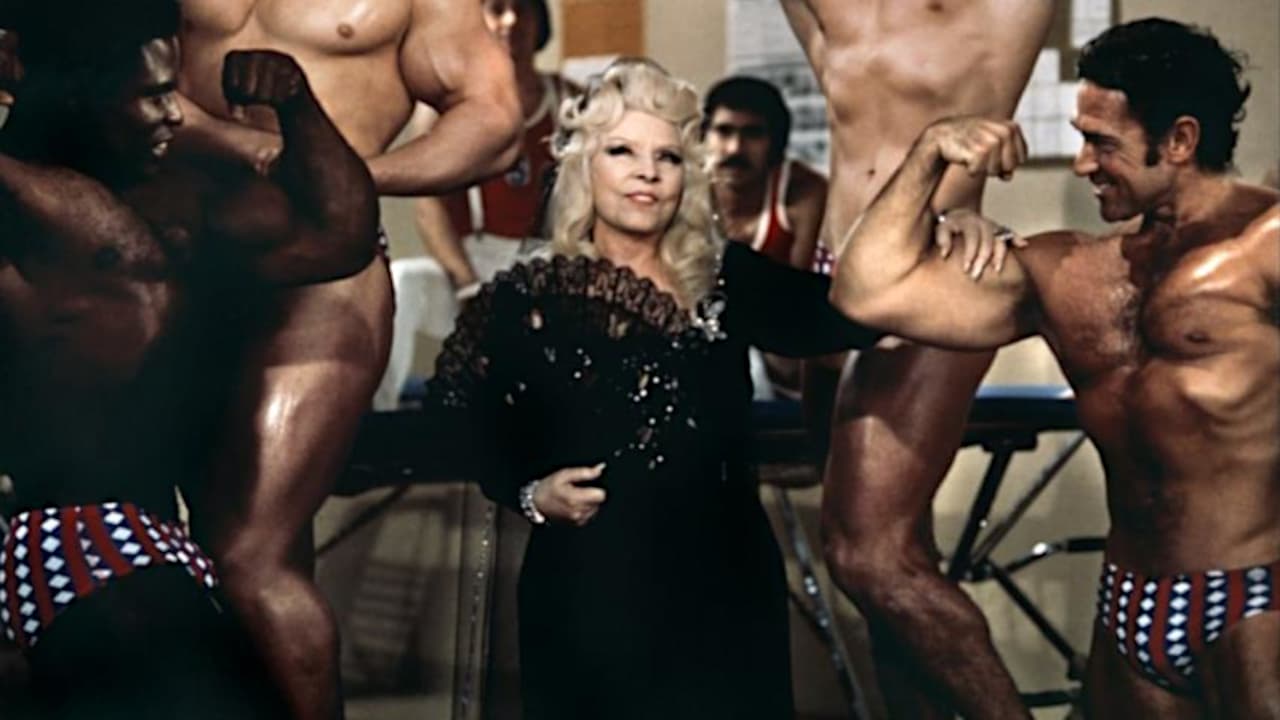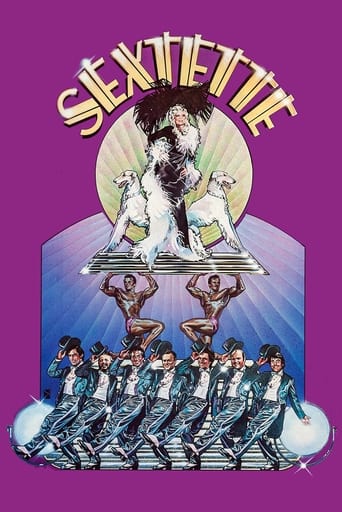

This film was mediocre at best. Ms. West was at her best during the early part of her career. This was her mostly self funded swan song. Some of her friends were asked to and accepted parts in order to salvage a so so screenplay and somewhat better original play penned by Ms. West.It had its moments but thats about it Further interest was peaked when I read a review dated 2006 from someone who not only gave it a "10", but for a better word drooled over Ms. West for most of his review. He also stated that she was not just one of but "the greatest actress of all time". What?????. I believe he needs to get out of the house more often.
... View MoreIn the movie Sunset Boulevard, the character of Norma Desmond spends a good portion of the movie hard at work on a script that is eventually described as terrible and un-filmable once it is complete. I like to think Sextette is the film she was working on.I will say this, even if you are the kind of person who has built a shrine to Mae West in your home, this movie should give you pause. 80-something Mae West plays a version of herself named "Marlo Manners." Ms. Manners is an international film star/sex symbol who has just arrived in London following her marriage to a 30-something Timothy Dalton. International intrigue abounds (Ms. Manners is naturally a skilled diplomat), along with some eye opening "musical numbers" that consist of the cast dancing around Mae West, who barely looks able to sway side to side in a consistent fashion.Sextette is a campy delight, but it's also just really sad. Watching the movie, I think there is a real question as to how lucid Mae West was at this point in her life. She doesn't seem entirely aware of where she is, and her line readings are, at best, confused. Aside from those issues, the movie itself is just a bizarre vanity project for a faded film star who was still doing the same shtick in 1978 that she had been doing since the early 1900s. Overall, it's an interesting movie to watch, but also serves as a warning about knowing when to say "no" to a project.
... View MoreWhat exactly can anyone say about "Sextette"? Ostensibly a Seventies-era reworking of Mae West's 1926 play "Sex", this movie exists within it's own continuum of both camp and sadness. You either laugh at the complete absurdity of it all or feel a deep pity for everyone who signed on to participate in the hot mess the whole enterprise turned into. West, who was in her mid- 80s at the time of filming, had been rediscovered by audiences who had no idea who she was by appearing in Michael Sarne's career killing version of "Myra Breckinridge" (1970). Mae's infamous feud with Rachel Welch during the filming of "Myra" brought her into the public eye again, so six years later, "Sextette" was trotted out to cash in on Mae's newfound camp appeal. The time had passed for Mae to be nothing other than a caricature of herself, there's a certain cruelty evident when she appears on screen here. No special effects could hide the years Mae was carrying, she looks like a mummy slathered with makeup and topped with a gargantuan blond wig. She arthritically weaves, wobbles, sashays, and gives her all in a performance that uses her most famous double-entendres. The poor thing tries, but she's now a visibly tired cartoon. A dirty joke about a supposed sex- bomb who's decades old and a horny granny to boot. Newly wed Mae cavorts in a British hotel with her young husband (Timothy Dalton) in a farce straight out of the 1930s. Several plots are running simultaneously: a global peace initiative is taking place at the hotel, Mae's tape recorded diary (on a pink cassette) of her marriages and sexual secrets has gone missing, the British press thinks her new husband is gay, American muscle-men are working out at the hotel, and nearly all of Mae's ex-husbands are wandering around the joint interrupting her wedding night. Mae contends with all the madness around her by constantly changing her Edith Head costumes, which are anachronistic in the extreme and verbally sparring with the ex- husbands played by Ringo Starr, Tony Curtis, and George Hamilton. Mae sidles up to the muscle in the gym, evidently clueless to the fact that they're all more interested in each other than they are in her, and finally saves the world at the peace summit talks. Throw in many sad cameos and the last film appearances of Mae, Walter Pidgeon, and George Raft. Throw in musical numbers that border on the surreal. Add a soundtrack by Van McCoy, the composer who gave the world the disco anthem "The Hustle". Mr. McCoy gives Mae a frightening disco-ized version of "Baby Face" to warble, a bizarre "Hooray for Hollywood" production number, and the inimitable Dom Deluise belting out the Beatles' "Honey Pie" while faking tap dancing on top of a piano. Rockers Keith Moon and Alice Cooper show up. All this, and more. Undoubtedly, this whole enterprise probably sounded like a good idea at the time. Hollywood legend returns and everyone gets down to Boogietown! Boffo box-office! In reality, no one cared or paid to see this. Mae died two years after making this, which is very sad indeed. Instead of going out remembered as an icon, she went as a mummy looking for sex and wasting 80-odd (very odd) minutes on a set up for the last line in the movie. "Sextette", then, is an artifact from the era of platform shoes and pet rocks, two things no one needed even at the time. Best viewed after ingesting LSD and wearing polyester clothing.
... View MoreOne of the first Mae West films I ever saw was Myra Brekenridge. The film was OK up to a point but when Miss West enters the auditioning for leading men only.....I was mesmerized. I couldn't believe she was pushing eighty (assuming her birth year was 1890ish). From that point on I was determined to find Sextette. Fortunately, the video store purchased a copy for me. It was a pretty good film the first few times I saw it, but then I began to study it. There were a few scenes I saw that made me pause. It seemed that she had to be cued to say her lines. Usually when a flash bulb went off. For example, the the hotel lobby scene, when she says "well, if it wasn't my wedding night, you'd have a deal". Look for the flash just before the line is said. Another example was during the song "Hooray for Hollywood" It appears that Timothy Dalton has to really tug on her to get her to follow him. After closer examination, I think she sees an opening in the crowd, so she may have thought that was where she was supposed to go. Timothy REALLY tugs on her to get her to follow. Other than that, it is a film that will be cherished by her fans, for whom it was made. Still a good view.
... View More